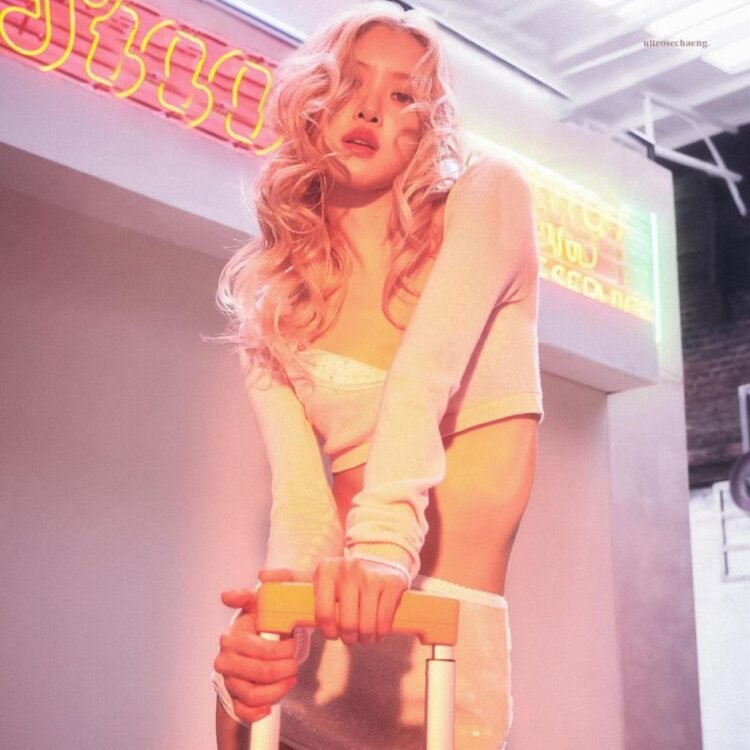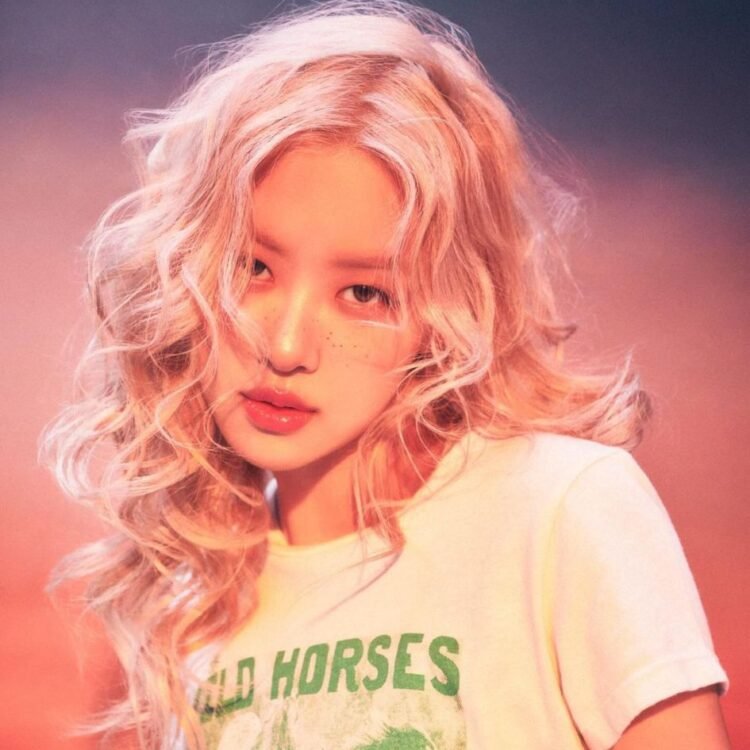When you’re Rosé from BLACKPINK, global fame doesn’t come with an “off” button, especially not on the internet.
Recently, Rosé peeled back the glossy curtain to reveal a side not often seen in pop culture: the very human impact of online hate and toxic relationships.
Her latest album dives headfirst into the unsettling yet relatable world of social media pressures and personal struggles.
For anyone who’s ever doom-scrolled through a barrage of comments, Rosé’s story isn’t just a glimpse into celebrity life; it’s a striking reminder that public figures face real, relatable emotional battles too.

Rosé and the Allure of Online Criticism: Addiction or Just Human?
In her upcoming album, Rosie, Rosé openly addresses a habit familiar to many: obsessing over online comments, even the cruellest ones.
“Addicted to reading hate comments” isn’t just a catchy phrase—it’s a trap she’s admitted to falling into.
As much as she tries to project confidence, she’s been candid about how even the harshest words “crush” her.
And while the internet might see Rosé as unfazed, the truth she’s shared is painfully relatable: every negative word lingers.
It’s a rare glimpse into the psychology of fame, where even a person idolised by millions can feel the sting of a single insult.
The more we scroll, the more we search for some hidden validation, even if we know it’s damaging.
But Rosé doesn’t shy away from this contradiction. Instead, she channels it into her music, turning a painful habit into art that speaks directly to anyone who’s been down the same dark rabbit hole.
Toxic Relationships: Not Just a Boyfriend Thing
Rosé’s reflections aren’t limited to online hate. In Rosie, she digs deep into another heavy topic: toxic relationships.
And she’s refreshingly open about the fact that these toxic connections don’t just mean romantic ones.
“It doesn’t even have to be about a boyfriend,” she shared, explaining that her music explores all kinds of tangled relationships—whether with friends, family, or even herself.
The allure of Rosé’s lyrics lies in their raw honesty, something that resonates with fans across the globe.
There’s something about hearing an idol say, “Hey, I’ve been through rough patches too, and here’s what it taught me.”
Her songs paint a picture that’s not polished or airbrushed; instead, it’s layered with the kind of emotional nuance that anyone who’s ever had a toxic relationship can feel deeply. And let’s be honest: most of us have been there.
Fame, Validation, and the Mental Health Struggle

Underneath all the glitz and glamour, Rosé’s journey highlights the modern struggle of maintaining mental health under constant public scrutiny.
The more she opens up, the more we see the exhausting side of being in the spotlight, where every post, every comment, every song release is met with a tidal wave of feedback.
In a candid interview with PAPERMagazine, Rosé admitted that she’s struggled with an addiction to validation, especially on social media, which often becomes a breeding ground for insecurities rather than support.
The desire to feel seen, valued, or even just understood—sounds universal, right?
But for someone as widely known as Rosé, that craving for affirmation from complete strangers brings a different intensity.
Fame amplifies everything, from love to criticism, making every comment feel like a hit or a miss.
It’s a world that’s all too easy to relate to, as we all wrestle with the urge to check “just one more” notification.
From Idol to Human: Rosé’s Journey Towards Vulnerability
In the music industry, vulnerability can be a double-edged sword. But Rosé has chosen to wield it fearlessly, even if that means showing a side of herself she used to want to hide.
Through her latest songs, she’s stepping into a new space—one where her lyrics serve as an invitation to see her not as an untouchable idol, but as a person navigating her twenties just like anyone else.
As she said in a recent interview, “I’m not much different from your average girlfriend.”
It’s a statement that might seem modest, but it’s also a bold assertion in a world where celebrities are often expected to be more than human.
For Rosé, embracing this identity means tapping into the very things that connect her to fans on a personal level—showing that despite the fame, she feels, struggles, and learns just like the rest of us.
Why Rosé’s Vulnerability Matters
So why does Rosé’s vulnerability strike a chord? Because it’s authentic.
In a culture obsessed with perfection, she’s offering something refreshing by speaking openly about mental health, social media pressures, and toxic relationships.
By doing so, she’s breaking down the walls between herself and her fans, inviting them into her world, flaws and all.
For readers and listeners alike, her journey is a reminder that vulnerability isn’t a weakness—it’s a superpower.
And in a world that often forgets the humanity behind the spotlight, Rosé’s story is one that deserves to be heard.
Whether you’re navigating your own rocky relationships, battling the siren song of social media, or just trying to make sense of life’s ups and downs, Rosé’s music offers a relatable refuge.

To get a deeper dive into her musical journey, you might want to check out this exploration of her single “APT.” withBruno Mars, which has already sparked curiosity worldwide.
So if you find yourself doom-scrolling or wrestling with a relationship that feels toxic, take a page from Rosé’s book.
Sometimes, embracing your vulnerability isn’t just the most courageous thing you can do; it’s also the most relatable.


